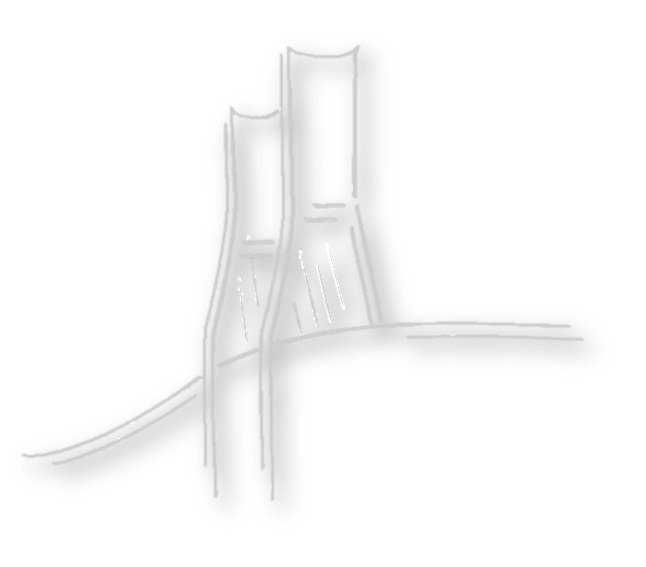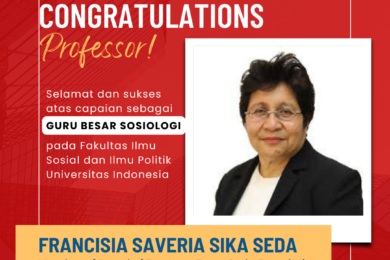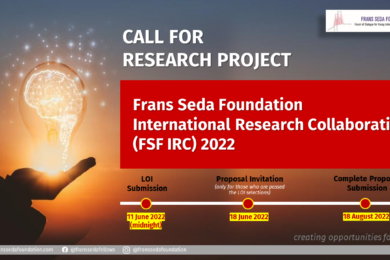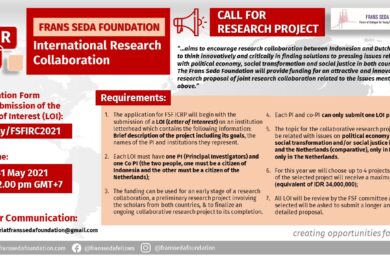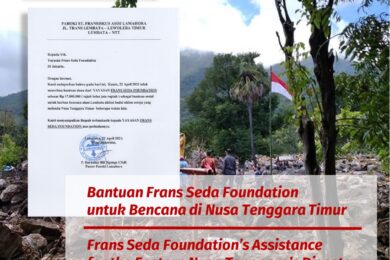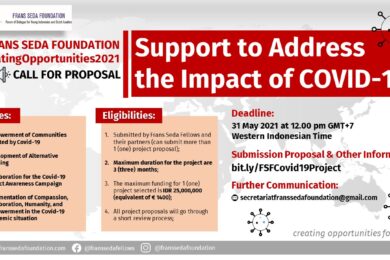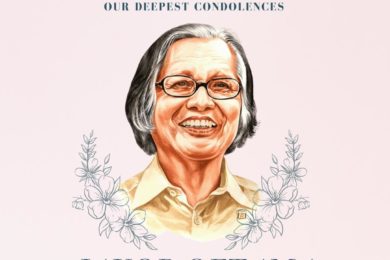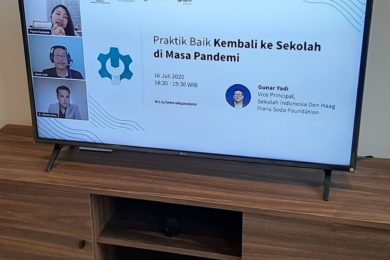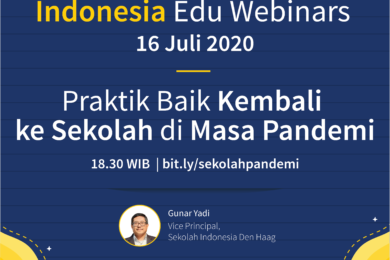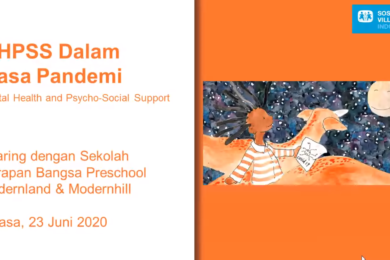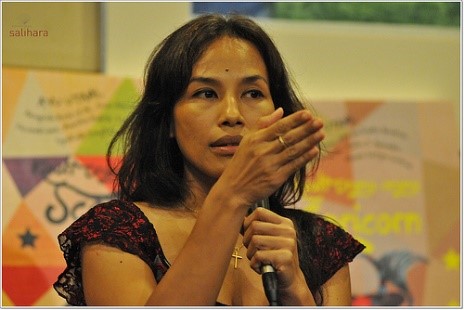Today is the day of the University of Tilburg. We rose early as the bus would leave around 8.00. That was a bit later because of traffic jams. Rennie took well care of us and supplied everybody with water and stroopwafels in the bus. While snoozing the trip went smooth and one and half hour later we disembarked at the green campus of the University of Tilburg, where Frans Seda once studied economics.
 The University planned us in a kind of basement college-room to work in. One of the current twin students in the Frans Seda Foundation joined us there, a second one joined later. We were invited to work at any subject we would like to, in a place of our preference. Most of us choose to work at the finalization of our presentations at the Starbucks terrace. Half an hour before lunch we gathered in the reception hall and shared our motivations to continue our project after the seminar. When a motivation of one of the group resonated with us, we stepped forward to show our appreciation. We enjoyed lunch with the board in Grand Café Esplanade at the campus.
The University planned us in a kind of basement college-room to work in. One of the current twin students in the Frans Seda Foundation joined us there, a second one joined later. We were invited to work at any subject we would like to, in a place of our preference. Most of us choose to work at the finalization of our presentations at the Starbucks terrace. Half an hour before lunch we gathered in the reception hall and shared our motivations to continue our project after the seminar. When a motivation of one of the group resonated with us, we stepped forward to show our appreciation. We enjoyed lunch with the board in Grand Café Esplanade at the campus.
Rennie, Mahendra, Mikhael and others prepared the auditorium and the reception hall for the Frans Seda Lecture. Twenty of the most beautiful sarongs of Jo Seda were hung with an explanation of the origin and meaning of the decorations. It gave the reception hall and auditorium instantly an Indonesian feeling.
The lecture was opened by the President of the University dr. Koen Becking. Irene stepped up as the announcer of the different speakers. She introduced first Mr Ibnu Wahyutomo, head of the Chancery of the Embassy of the Republik Indonesia, then Dolf Huijgers, chairmen of the Frans Seda Foundation, and then Mahendra as facilitator of the lecture. Mahendra introduced us to the different panel speakers and led the panel discussion with the audience.
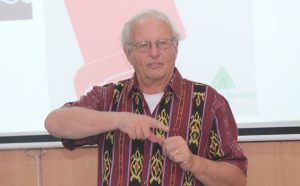 Prof. Karel Steenbrink, took us through the vast changes in the last 4 decades of the colonial times in East Indonesia especially in Flores: the time frame in which Frans Seda grew up. In this periode large scale education was introduced, Malay was introduced as instrument for opening the society for the different language groups, the spread of Catholicism with the teachers, and the immigration that stimulated the birth of self-determination. He also warned Indonesia as well as the Netherlands for negative consequences of pillarization along religious lines of media, press, schools, politics and trade unions.
Prof. Karel Steenbrink, took us through the vast changes in the last 4 decades of the colonial times in East Indonesia especially in Flores: the time frame in which Frans Seda grew up. In this periode large scale education was introduced, Malay was introduced as instrument for opening the society for the different language groups, the spread of Catholicism with the teachers, and the immigration that stimulated the birth of self-determination. He also warned Indonesia as well as the Netherlands for negative consequences of pillarization along religious lines of media, press, schools, politics and trade unions.
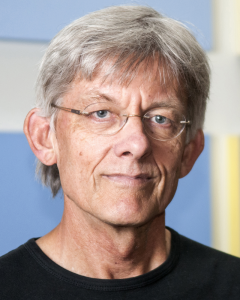 Mr. Dr. Gerry van Klingen took us along for a lively inside analysis of the active live and sad end of Jan Djong, an energetic politician in his days in Maumere. Jan Djong was inspired by the then very modern idea to live in a state that also belonged to him, just like the current Arabic Spring demonstrators. The Republic of Indonesia came into existence precisely by this sense of citizenship. In these days de Raja’s were in charge on behalf of the Dutch and cooperated with the Catholic church. The Raja was ruler and judge these days. Jan Djong – to stay away from the burning way of fighting for your case – organized several modern ‘demonstrassi’ s’. Between his first and his last ‘demonstrassi’ were 12 years. In 1966 he was taken to jail for the last time and died after being refused the extreme unction. After his death, he and 800 other jailed man were buried in a huge hole at a plantation of the Catholic Mission of Maumere.
Mr. Dr. Gerry van Klingen took us along for a lively inside analysis of the active live and sad end of Jan Djong, an energetic politician in his days in Maumere. Jan Djong was inspired by the then very modern idea to live in a state that also belonged to him, just like the current Arabic Spring demonstrators. The Republic of Indonesia came into existence precisely by this sense of citizenship. In these days de Raja’s were in charge on behalf of the Dutch and cooperated with the Catholic church. The Raja was ruler and judge these days. Jan Djong – to stay away from the burning way of fighting for your case – organized several modern ‘demonstrassi’ s’. Between his first and his last ‘demonstrassi’ were 12 years. In 1966 he was taken to jail for the last time and died after being refused the extreme unction. After his death, he and 800 other jailed man were buried in a huge hole at a plantation of the Catholic Mission of Maumere.
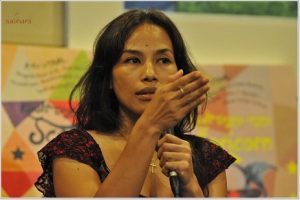 And mrs. Ayu Utami took us along in unwinding the concept of reason and rasa. The reason has a desire to declare one truth more valuable then another and reason lacks the connective power of the heart, the intuition, the synergy of intuition and understanding, all combined in the concept ‘rasa’. In rasa it is very well possible to combine multiple truths and let them exist at the same time. Too many people are declared ‘non-grata’, because they carry and live a religion, sexual preference, political party or color. It is this social development we as a race have to overcome. It is this clash of rasa and reason that the – western – world needs to overcome.
And mrs. Ayu Utami took us along in unwinding the concept of reason and rasa. The reason has a desire to declare one truth more valuable then another and reason lacks the connective power of the heart, the intuition, the synergy of intuition and understanding, all combined in the concept ‘rasa’. In rasa it is very well possible to combine multiple truths and let them exist at the same time. Too many people are declared ‘non-grata’, because they carry and live a religion, sexual preference, political party or color. It is this social development we as a race have to overcome. It is this clash of rasa and reason that the – western – world needs to overcome.
After the lecture there were several questions from the audience and one exceptionally well formulated compliment for mrs. Ayu Utami:’Mr Frans Seda would have been proud of you’. Then all panel members were given a Certificate of Appreciation out of the hands of Dolf Huijgers, chair of the Frans Seda Foundation and several group pictures were taken.
After a drink and may conversations and coincidental meetings, also with Hayo Klingen form the ministry of Foreign affairs, we went back to the bus and back to Den Haag. In restaurant Garuda waited us a delicious dinner. Steve speeched after which Steve and Dolf offered all participants a certificate of appreciation. We walked to the hotel for a last night sleep around 22.30 to prepare for the final presentations.
